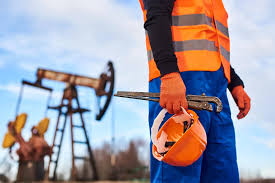Artificial Lift Optimization Training Course
Artificial Lift Optimization Training Course blends cutting-edge strategies with field-proven methodologies to help participants significantly boost production efficiency.

Course Overview
Artificial Lift Optimization Training Course
Introduction
Artificial Lift Optimization is a critical component in enhancing oil well productivity, maximizing reservoir recovery, and reducing operational costs. As energy markets become more competitive and technological innovation continues to evolve, petroleum engineers and production specialists must possess advanced skills in optimizing artificial lift systems, including ESPs, gas lift, rod pumps, and plunger lifts. Artificial Lift Optimization Training Course blends cutting-edge strategies with field-proven methodologies to help participants significantly boost production efficiency.
Designed with practical implementation in mind, the course dives deep into real-time monitoring, failure analysis, digital oilfield integration, and AI-driven predictive maintenance. With increasing reliance on data analytics and automation in the oil & gas sector, professionals will gain the tools and insights necessary to achieve performance excellence in artificial lift operations and decision-making processes.
Course Objectives
- Understand the fundamentals of artificial lift systems and their selection criteria.
- Analyze production performance for enhanced optimization strategies.
- Apply digital oilfield tools for real-time artificial lift monitoring.
- Optimize Electric Submersible Pumps (ESPs) using predictive analytics.
- Conduct failure analysis and diagnostics for lift system troubleshooting.
- Evaluate plunger lift performance using machine learning models.
- Integrate artificial intelligence in lift system design and automation.
- Enhance gas lift design and operations through smart controls.
- Minimize downtime through predictive maintenance techniques.
- Apply IoT-enabled sensors for lift performance optimization.
- Compare economic viability of various artificial lift methods.
- Incorporate sustainability practices in lift system operations.
- Develop field-wide optimization plans using integrated lift models.
Target Audiences
- Petroleum Engineers
- Production Technologists
- Field Operations Supervisors
- Artificial Lift Specialists
- Oil & Gas Consultants
- Asset Integrity Engineers
- Maintenance and Reliability Engineers
- Data Analysts in Upstream Operations
Course Duration: 5 days
Course Modules
Module 1: Introduction to Artificial Lift Systems
- Overview of artificial lift types
- Selection criteria and applications
- Importance in mature and marginal wells
- Introduction to performance metrics
- Key lift optimization challenges
- Case Study: Lift method selection for a brownfield asset
Module 2: Rod Pump Optimization Techniques
- Basic principles and mechanics
- Polished rod load analysis
- Surface and downhole dynamometer interpretation
- Stroke optimization and speed control
- Troubleshooting sucker rod failures
- Case Study: Optimizing rod pump in high gas/oil ratio wells
Module 3: Electric Submersible Pump (ESP) Optimization
- ESP system design and sizing
- Variable speed drive (VSD) operations
- Managing gas interference and solids
- ESP run-life extension strategies
- Real-time monitoring and control
- Case Study: ESP failure analysis in offshore wells
Module 4: Gas Lift System Design and Tuning
- Principles of continuous and intermittent gas lift
- Gas lift valve placement and unloading
- Lift gas rate optimization
- Closed-loop control systems
- Automation of gas lift operations
- Case Study: Improving gas lift performance in multi-well fields
Module 5: Plunger Lift and Hybrid Lift Methods
- Plunger lift selection and mechanics
- Cycle optimization for high efficiency
- Pressure transient analysis
- Integration with hybrid lift techniques
- Economical application in low-rate wells
- Case Study: Hybrid lift strategy for declining well
Module 6: Artificial Lift Data Analytics and IoT Integration
- Digital sensors and edge computing
- Data collection, validation, and visualization
- KPI tracking and dashboard implementation
- Machine learning models for lift prediction
- Role of cloud computing in artificial lift
- Case Study: IoT-enabled lift monitoring for predictive shutdowns
Module 7: Advanced Troubleshooting and Failure Analysis
- Root cause analysis techniques
- Downhole and surface equipment diagnostics
- Use of SCADA and AI alerts
- Strategies to prevent premature failures
- Failure prediction models using AI
- Case Study: Failure root cause audit in a high-deviation well
Module 8: Field-Wide Optimization and Economic Evaluation
- Integrated asset modeling for lift optimization
- Optimization across multiple lift types
- Life-cycle cost analysis
- Impact of oil price scenarios on lift economics
- Use of simulation and decision-support tools
- Case Study: Field-wide lift optimization plan for a shale asset
Training Methodology
- Instructor-led interactive presentations
- Real-life case studies and simulation exercises
- Hands-on sessions using analytics tools
- Group discussions and collaborative problem solving
- Post-training self-assessment toolkit
- Digital access to course resources and models
Register as a group from 3 participants for a Discount
Send us an email: info@datastatresearch.org or call +254724527104
Certification
Upon successful completion of this training, participants will be issued with a globally- recognized certificate.
Tailor-Made Course
We also offer tailor-made courses based on your needs.
Key Notes
a. The participant must be conversant with English.
b. Upon completion of training the participant will be issued with an Authorized Training Certificate
c. Course duration is flexible and the contents can be modified to fit any number of days.
d. The course fee includes facilitation training materials, 2 coffee breaks, buffet lunch and A Certificate upon successful completion of Training.
e. One-year post-training support Consultation and Coaching provided after the course.
f. Payment should be done at least a week before commence of the training, to DATASTAT CONSULTANCY LTD account, as indicated in the invoice so as to enable us prepare better for you.